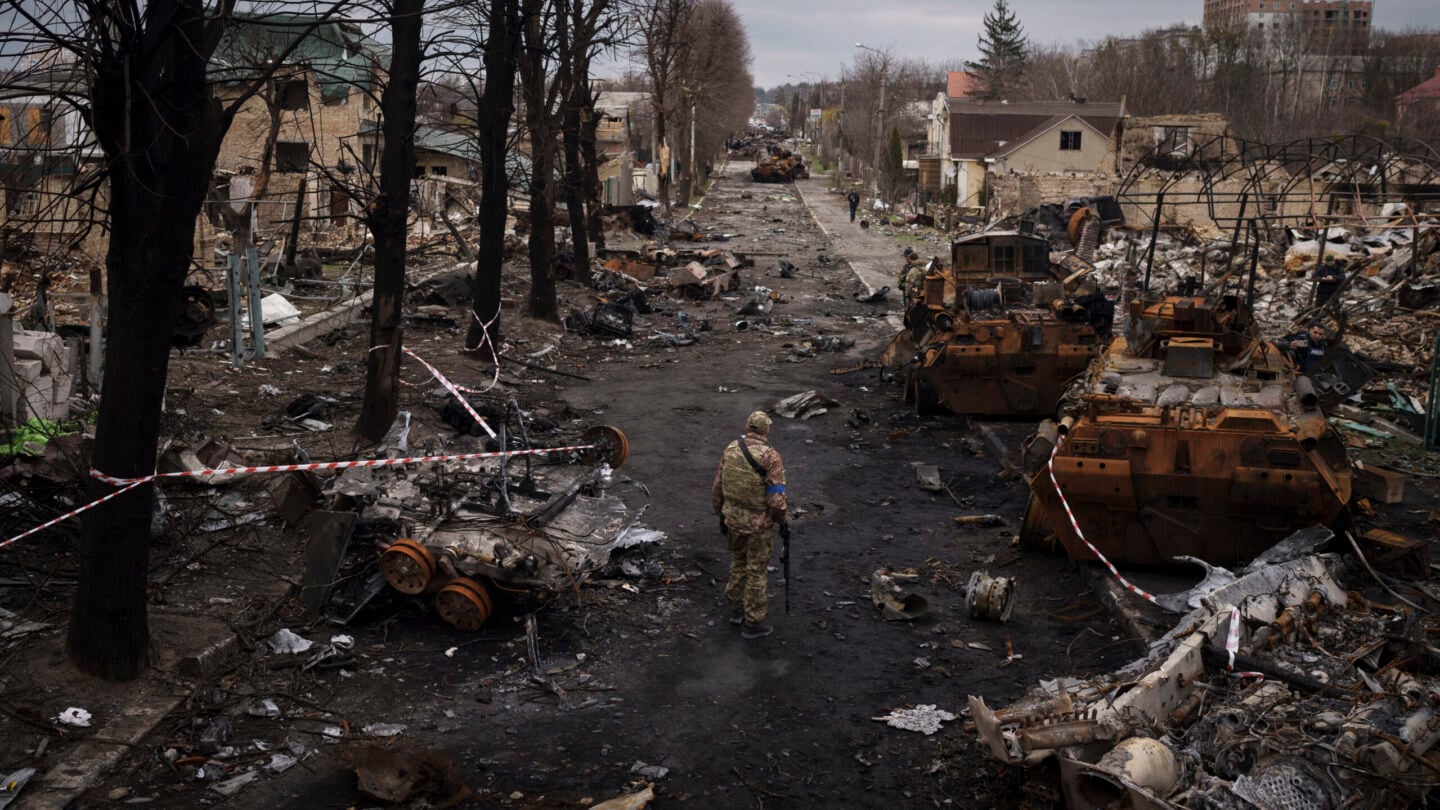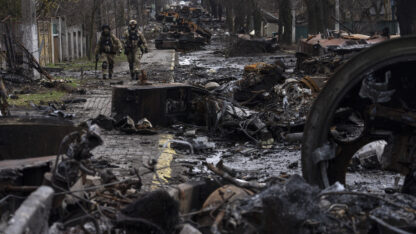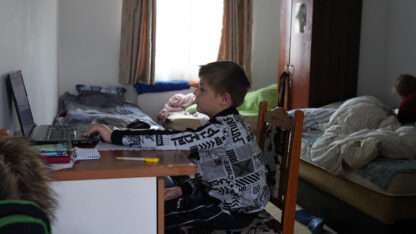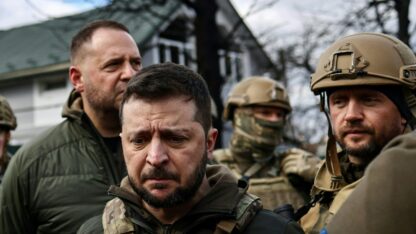Emory law professor: Mounting evidence of Russian war crimes is difficult to reject

The visual evidence of criminal atrocities coming out of Ukraine this week is striking.
Some graphic satellite and on-the-ground images from the town of Bucha show dead civilians in the streets, some with their hands tied behind their backs. Frustrated, Ukrainian President Volodymyr Zelensky addressed the United Nation’s Security Council this week, describing the horrors of how Russian forces allegedly executed families and left mass graves behind them.
Zelensky told members that if there’s nothing the council can do besides hold conversation, it should “dissolve.”
“Where is the security that the Security Council needs to guarantee?” Zelensky asked. “It’s not there.”
Then there’s the recent airstrikes on apartments just outside Kyiv this week. As many as 200 people are missing and feared to be dead, according to Ukrainian officials.
President Joe Biden called those acts “major war crimes” as the U.S. imposed further sanctions on Russia.
Emory University law professor Laurie Blank tells WABE that if Russian forces committed these acts, that country would be violating what she calls the most fundamental rule of international law in times of war — deliberately targeting civilians.
Lily Oppenheimer contributed to this report.








